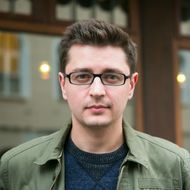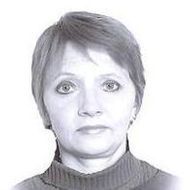В старых версиях браузеров сайт может отображаться некорректно. Для оптимальной работы с сайтом рекомендуем воспользоваться современным браузером.
✖
- A
- A
- A
- ABC
- ABC
- ABC
- А
- А
- А
- А
- А
Regular version of the site
ФКН
- HSE University
- Educational Departments
- Faculty of Humanities
- School of Philosophy and Cultural Studies
- Research Group "Soviet and Post-Soviet Intellectual and Artistic Culture"
-
School
- About the School
- Faculty Members
- International Faculty
- Scientific activity
- Educational activity
-
Research Groups
-
Educational Programmes
-
Conferences
Address: 21/4 Staraya Basmannaya Ultisa, building 1, room 414в
Phone: +7 495 772-95-90*22692
Email: aengovatova@hse.ru
Administration
Head of the School
–
Alexander Pavlov
Academic Supervisor
–
Vladimir N. Porus
Deputy Head of the School
–
Dina Shulyatieva
Manager
–
Natalia Zakharova
Research Group "Soviet and Post-Soviet Intellectual and Artistic Culture"
Head: Ilya Kukulin
Participants: Ekaterina Danilkina, Anna Ganzha, Irina Glushchenko, Elena Karpenko, Irina Lagutina, Jan Levchenko, Maria Mayofis, Olga Roginskaya, Zemfira Salamova.
Today, the history of Soviet society seems to be studied quite well. However, even now, one can recall a number of everyday cultural practices that are well-known to the majority of former Soviet citizens who lived in the 1950s—1980s, but not included within the scope of academic research, and therefore, not understood historically and considered in the context of “big”, international history. Consider for instance the construction and maintenance of more or less intimate personal relationships; reading “between the lines” in books and newspapers; the emergence and development of academic groups that strived to avoid censorship restrictions, and managed sometimes to succeed, as in the case of the Moscow—Tartu Semiotic School; the pursuit of “real” (unofficial) intellectual interests within the framework of pompous Soviet jubilees of political and/or cultural celebrities, whether Russian or foreign, or of other solemn events functioning only as formal “covers”; public discussions (say, of literary works or theater performances) where the issues of genuine interest for the discussants could be mentioned only through hints and allusions. All of these practices are very interesting in themselves, but are also elements in a larger picture presenting a complex weave of modernizing and counter-modernizing tendencies in different segments of Soviet society. The work of our research group focuses on the principles shaping such (or similar) “ensembles.” A further subject of our research is the post-Soviet transformation of these practices and their traces – or analogues – in contemporary Russian culture, as well as the memory of these practices and their representation in literature, films, TV series, and the like.
Participants: Ekaterina Danilkina, Anna Ganzha, Irina Glushchenko, Elena Karpenko, Irina Lagutina, Jan Levchenko, Maria Mayofis, Olga Roginskaya, Zemfira Salamova.
Today, the history of Soviet society seems to be studied quite well. However, even now, one can recall a number of everyday cultural practices that are well-known to the majority of former Soviet citizens who lived in the 1950s—1980s, but not included within the scope of academic research, and therefore, not understood historically and considered in the context of “big”, international history. Consider for instance the construction and maintenance of more or less intimate personal relationships; reading “between the lines” in books and newspapers; the emergence and development of academic groups that strived to avoid censorship restrictions, and managed sometimes to succeed, as in the case of the Moscow—Tartu Semiotic School; the pursuit of “real” (unofficial) intellectual interests within the framework of pompous Soviet jubilees of political and/or cultural celebrities, whether Russian or foreign, or of other solemn events functioning only as formal “covers”; public discussions (say, of literary works or theater performances) where the issues of genuine interest for the discussants could be mentioned only through hints and allusions. All of these practices are very interesting in themselves, but are also elements in a larger picture presenting a complex weave of modernizing and counter-modernizing tendencies in different segments of Soviet society. The work of our research group focuses on the principles shaping such (or similar) “ensembles.” A further subject of our research is the post-Soviet transformation of these practices and their traces – or analogues – in contemporary Russian culture, as well as the memory of these practices and their representation in literature, films, TV series, and the like.
- About
- About
- Key Figures & Facts
- Sustainability at HSE University
- Faculties & Departments
- International Partnerships
- Faculty & Staff
- HSE Buildings
- HSE University for Persons with Disabilities
- Public Enquiries
- Studies
- Admissions
- Programme Catalogue
- Undergraduate
- Graduate
- Exchange Programmes
- Summer Schools
- Semester in Moscow
- Business Internship
- © HSE University 1993–2026 Contacts Copyright Privacy Policy Site Map
- Edit



